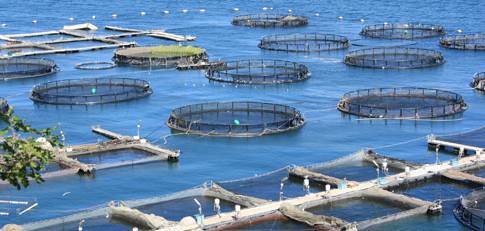
The Aquatic Life Institute has been heavily involved with the Food and Agriculture Organization of the United Nations by contributing to the revision of the Guidelines for Sustainable Aquaculture as well as the Shanghai Declaration, a high-level global policy document and a roadmap to optimize the role aquaculture can play in achieving the 2030 Agenda for Sustainable Development.
We are delighted to announce that not only the Food and Agriculture Organization of the United Nations (FAO) incorporated our comments on the importance of aquatic animal welfare into the final draft of the Shanghai Declaration, but that it invited us to speak at the Millennium World Aquaculture Conference, where over 500 people attended in Shanghai, China, while over 800 people from all over the world virtually attended! It is truly a plea for our efforts and a turning point in the way the highest international institutions view aquatic animals.
The Shanghai Declaration
The GCA (Global Conference on Aquaculture) is organized every 10 years by FAO, a major conference aimed at building consensus among decision-makers around the world on aquaculture development priorities. This year, one of the main results was the creation of the Shanghai Declaration. Considering that the first draft only attached a single reference to the welfare of aquatic animals with regard to biosecurity and disease prevention:
"Promote aquatic biosecurity management protocols and agreements, including disease prevention and integrated disease and pest management, and encourage actions to improve fish health and welfare." "
The final version added a brand new aquatic animal welfare clause based on our feedback:
Our comments: Add “Recognize that the sustainable and equitable development of aquaculture requires a holistic approach - an approach that values both the health and well-being of humans and animals. Considerations for the welfare of aquatic animals are essential to maintain a healthy immune system while minimizing the negative environmental and social impacts of aquaculture, including damaging the ecosystem and endangering long-term food security.
Final version: “ Recognize that the sustainable and equitable development of aquaculture requires a holistic approach that values both the health and well-being of humans and animals and further recognize that aquaculture activities should be carried out in a manner that ensures the health and welfare of farmed aquatic animals, optimizing health, minimizing stress, reducing the risk of aquatic animal disease and maintaining a healthy farming environment at all stages of the production cycle . "
In addition, in addition to urging FAO to improve aquatic animal welfare in its draft Shanghai Declaration, another main point we raised in our comments was that although locally caught fish can provide a nutritious diet to vulnerable communities whose livelihoods depend on fish, it is not a sustainable protein alternative for the masses, and certainly not at intensive aquaculture production levels. In the final draft, the Shanghai Declaration made it clear that aquaculture should be developed in a way that does not harm planetary, human and animal health:
“At the same time, to feed a constantly growing human population, which is expected to reach nearly 10 billion people by 2050, aquaculture development must continue to expand while becoming more sustainable. Recognizing that the ability of aquaculture to continue to grow and the need to prevent such growth from occurring at the cost of deteriorating ecosystem health, animal welfare standards, loss of biodiversity or social inequalities, the aquaculture sector requires new sustainable and equitable development strategies. The private sector will remain the primary player in aquaculture production, and substantial public sector support and strong leadership will also be required, with input and guidance from government and civil society playing a critical role in regulating aquaculture. aquaculture, as well as in supporting and promoting the views, participation and benefits of citizens. "
Historically, aquatic animals have been overlooked in welfare advocacy and research. Even at the highest levels of society, their sensitivity is rarely recognized and their well-being is rarely taken into consideration. Today, for the first time, FAO issued high level guidelines that include the welfare of aquatic animals, which will influence the development of aquaculture for the next decade.
Posted on 2021-10-07 10:30








Comments